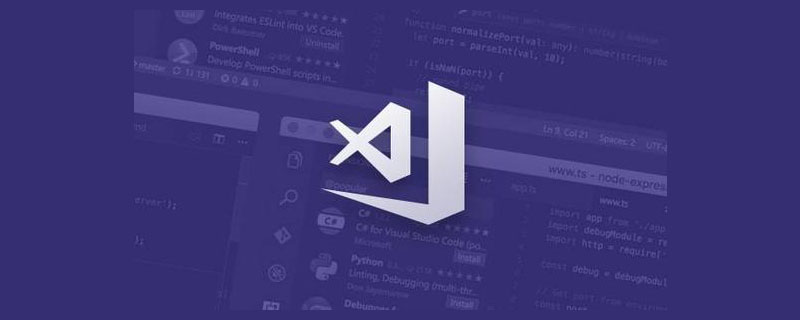 Backend Development
Backend Development PHP Tutorial
PHP Tutorial Preliminary preparation and demand analysis for developing mutual attention system in PHP
Preliminary preparation and demand analysis for developing mutual attention system in PHP
Preliminary preparation and demand analysis for developing mutual attention system in PHP
With the rapid development of social media, people’s demand for mutual attention is also increasing. In order to meet this demand, we plan to develop a PHP-based mutual attention system to help users better track their areas of interest and the objects of their attention. Before starting development, we need to conduct a series of preliminary preparations and needs analysis to ensure the smooth progress of the project.
1. Early preparation
- Determine project goals and scope: Before starting development, we need to clarify the main goals and scope of the system. For example, we plan to develop a mutual following system for mass users, in which users can follow topics, people or organizations they are interested in, and can view the attention of others.
- Estimated project time and workload: After determining the project goals and scope, we need to make a preliminary estimate of the project time and workload. This will help us make better plans and ensure projects are delivered on time.
- Determine the project team and role allocation: Based on the scale and workload of the project, determine the project team members and their respective role allocation. Generally speaking, a typical web development team may include project managers, developers, front-end engineers, back-end engineers, testers, etc.
- Determine development tools and environments: Choose appropriate development tools and environments so that team members can perform development work efficiently. In PHP development, editors (such as Sublime Text, VS Code, etc.) and development environments (such as XAMPP, WAMP, etc.) are generally used for development.
2. Requirements analysis
- Functional requirements analysis: Determine the functions that the system needs to have based on the project goals and scope. For example, user registration and login functions, adding and deleting functions of following objects, dynamic display functions of following objects, etc.
- User needs analysis: Understand and analyze user needs and expectations in order to better design and develop systems. User needs can be collected through user surveys, interviews, etc.
- Data requirements analysis: Determine the data structure and storage methods required by the system. For example, storage of user information, data storage of objects of interest, etc. When designing a database, data integrity and consistency need to be considered.
- Performance requirements analysis: Consider the performance requirements of the system to ensure that the system can run stably and meet user needs. Performance testing and evaluation can be used to identify system performance bottlenecks and improvement directions.
- Security requirements analysis: Ensure system security and prevent malicious attacks and illegal access. For example, encrypted storage of user passwords, control of user permissions, etc.
Through preliminary preparation and demand analysis, we can clarify the goals and scope of the project and understand the user's needs and expectations. This will help us better carry out system design and development, ensure that projects can be delivered on time and meet user needs. In the subsequent development process, we will continue to conduct detailed system design, coding and testing, striving to develop a high-quality mutual attention system.
The above is the detailed content of Preliminary preparation and demand analysis for developing mutual attention system in PHP. For more information, please follow other related articles on the PHP Chinese website!
 微信小程序中PHP开发的翻页特效实现方法Jun 01, 2023 pm 01:51 PM
微信小程序中PHP开发的翻页特效实现方法Jun 01, 2023 pm 01:51 PM在微信小程序中,PHP开发的翻页特效是非常常见的功能。通过这种特效,用户可以轻松地在不同的页面之间进行切换,浏览更多的内容。在本文中,我们将介绍如何使用PHP来实现微信小程序中的翻页特效。我们将会讲解一些基本的PHP知识和技巧,以及一些实际的代码示例。理解基本的PHP语言知识在PHP中,我们经常会用到IF/ELSE语句、循环结构,以及函数等一些基本语言知识。
 微信小程序中PHP开发的常用工具库介绍Jun 01, 2023 pm 07:40 PM
微信小程序中PHP开发的常用工具库介绍Jun 01, 2023 pm 07:40 PM随着微信小程序的普及和发展,越来越多的开发者开始涉足其中。而PHP作为一种后端技术的代表,也在小程序中得到了广泛的运用。在小程序的开发中,PHP常用工具库也是很重要的一个部分。本文将介绍几款比较实用的PHP常用工具库,供大家参考。一、EasyWeChatEasyWeChat是一个开源的微信开发工具库,用于快速开发微信应用。它提供了一些常用的微信接口,如微信公
 如何利用PHP开发商城的满额赠礼功能May 22, 2023 am 10:02 AM
如何利用PHP开发商城的满额赠礼功能May 22, 2023 am 10:02 AM网上购物已经成为人们日常生活中不可或缺的一部分,因此,越来越多的企业开始关注电商领域。开发一款实用、易用的商城网站也成为了企业提高销售额、拓展市场的必要手段之一。在商城网站中,满额赠礼功能是提高用户购买欲望和促进销售增长的重要功能之一。本文将探讨如何利用PHP开发商城的满额赠礼功能。一、满额赠礼功能的实现思路在商城开发中,如何实现满额赠礼功能呢?简单来说就是
 微信小程序中PHP开发的加密和解密实现方法Jun 01, 2023 am 08:12 AM
微信小程序中PHP开发的加密和解密实现方法Jun 01, 2023 am 08:12 AM随着微信小程序在移动应用市场中越来越流行,它的开发也受到越来越多的关注。在小程序中,PHP作为一种常用的后端语言,经常用于处理敏感数据的加密和解密。本文将介绍在微信小程序中如何使用PHP实现加密和解密。一、什么是加密和解密?加密是将敏感数据转换为不可读的形式,以确保数据在传输过程中不被窃取或篡改。解密是将加密数据还原为原始数据。在小程序中,加密和解密通常包括
 PHP开发中提供效率的VSCode插件推荐(值得收藏)Mar 30, 2021 pm 07:31 PM
PHP开发中提供效率的VSCode插件推荐(值得收藏)Mar 30, 2021 pm 07:31 PM本篇文章给大家推荐一些VSCode+PHP开发中实用的插件。有一定的参考价值,有需要的朋友可以参考一下,希望对大家有所帮助。
 微信小程序中PHP开发的文本框自动完成功能实现方法Jun 01, 2023 pm 07:42 PM
微信小程序中PHP开发的文本框自动完成功能实现方法Jun 01, 2023 pm 07:42 PM随着微信小程序的普及,各类开发需求也日渐增多。其中,文本框自动完成功能是小程序中常用的功能之一。虽然微信小程序提供了一些原生的组件,但是有一些特殊需求还是需要进行二次开发。本文将介绍如何使用PHP语言实现微信小程序中文本框自动完成功能。准备工作在开始开发之前,需要准备一些基本的环境和工具。首先,需要安装好PHP环境。其次,需要在微信小程序后台获取到自己的Ap
 微信小程序中PHP开发的滑动验证码实现方式Jun 01, 2023 pm 09:01 PM
微信小程序中PHP开发的滑动验证码实现方式Jun 01, 2023 pm 09:01 PM随着互联网的快速发展,网络安全问题也变得越来越严峻。针对恶意攻击、刷单等安全威胁,很多网站和应用程序都使用了验证码来保护用户信息和系统安全。在微信小程序中,如何实现一个安全可靠的滑动验证码呢?本文将介绍使用PHP开发的滑动验证码实现方式。一、滑动验证码的原理滑动验证码是指在验证用户身份时,通过用户在滑块上滑动完成验证过程。其原理是将一张图片分成两部分,一部分
 微信小程序中PHP开发的状态码和错误处理方法May 31, 2023 pm 07:52 PM
微信小程序中PHP开发的状态码和错误处理方法May 31, 2023 pm 07:52 PM作为目前最流行的社交媒体平台之一,微信已经成为了企业和个人互动沟通的重要渠道之一。而微信小程序则更加方便用户使用和开发者创新。在小程序开发中,PHP是一种重要的后端技术,但是在开发过程中很容易出现状态码和错误处理方面的问题。本文将介绍微信小程序中PHP开发的各种状态码和错误处理方法。一、微信小程序中的状态码在微信小程序中,HTTP状态码(HTTPStatu


Hot AI Tools

Undresser.AI Undress
AI-powered app for creating realistic nude photos

AI Clothes Remover
Online AI tool for removing clothes from photos.

Undress AI Tool
Undress images for free

Clothoff.io
AI clothes remover

AI Hentai Generator
Generate AI Hentai for free.

Hot Article

Hot Tools

SublimeText3 English version
Recommended: Win version, supports code prompts!

Safe Exam Browser
Safe Exam Browser is a secure browser environment for taking online exams securely. This software turns any computer into a secure workstation. It controls access to any utility and prevents students from using unauthorized resources.

Zend Studio 13.0.1
Powerful PHP integrated development environment

DVWA
Damn Vulnerable Web App (DVWA) is a PHP/MySQL web application that is very vulnerable. Its main goals are to be an aid for security professionals to test their skills and tools in a legal environment, to help web developers better understand the process of securing web applications, and to help teachers/students teach/learn in a classroom environment Web application security. The goal of DVWA is to practice some of the most common web vulnerabilities through a simple and straightforward interface, with varying degrees of difficulty. Please note that this software

mPDF
mPDF is a PHP library that can generate PDF files from UTF-8 encoded HTML. The original author, Ian Back, wrote mPDF to output PDF files "on the fly" from his website and handle different languages. It is slower than original scripts like HTML2FPDF and produces larger files when using Unicode fonts, but supports CSS styles etc. and has a lot of enhancements. Supports almost all languages, including RTL (Arabic and Hebrew) and CJK (Chinese, Japanese and Korean). Supports nested block-level elements (such as P, DIV),





